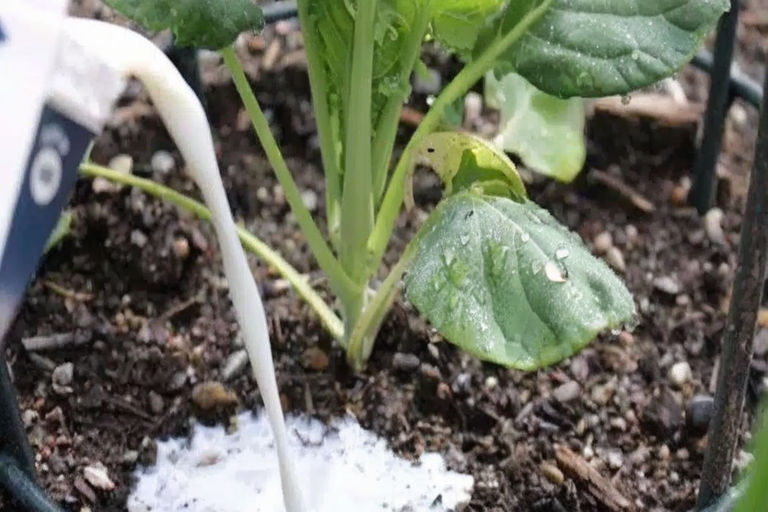
Title: The Surprising Effects of Using Milk to Water Plants
Gardening enthusiasts are always on the lookout for new and innovative ways to nurture their green companions. One unconventional method that has been gaining attention lately is the practice of watering plants with milk. The idea may sound unusual at first, but its proponents swear by its effectiveness in promoting plant growth and health. In this essay, we will explore the potential benefits and surprising outcomes of using milk as a fertilizer substitute for watering plants.
First and foremost, it’s essential to understand the rationale behind this practice. Milk contains various nutrients that are beneficial for both humans and plants. These nutrients include calcium, potassium, phosphorus, and traces of nitrogen—all of which are vital for plant growth and development. By watering plants with milk, gardeners aim to provide them with a nutrient-rich solution that can enhance their overall health and vigor.
One of the most notable benefits reported by those who have experimented with this method is improved soil fertility. The nutrients present in milk act as natural fertilizers, enriching the soil and creating a conducive environment for plant growth. As a result, plants may exhibit stronger root systems, lusher foliage, and more robust blooms.
Moreover, milk has been found to possess antifungal properties, which can help protect plants from common diseases and infections. When applied to the soil, milk creates an inhospitable environment for harmful pathogens, thereby reducing the risk of plant diseases such as powdery mildew and leaf spot. This natural defense mechanism can contribute to healthier and more resilient plants in the garden.
Interestingly, watering plants with milk can also attract beneficial microbes to the soil. These microbes play a crucial role in breaking down organic matter, releasing nutrients, and improving soil structure. By fostering a diverse microbial community, gardeners can create a thriving ecosystem that supports plant growth and vitality.
Furthermore, the use of milk as a natural fertilizer aligns with sustainable gardening practices. Unlike synthetic fertilizers, which may contain harmful chemicals and pollutants, milk is a safe and eco-friendly alternative. By harnessing the power of natural ingredients, gardeners can reduce their environmental footprint and promote biodiversity in their gardens.
However, it’s essential to note that while milk can offer several benefits to plants, its application should be approached with caution. Excessive use of milk may lead to undesirable consequences such as foul odor, soil acidity imbalance, and nutrient imbalances. Therefore, it’s crucial for gardeners to exercise moderation and monitor the effects of milk on their plants closely.
In addition to its practical benefits, using milk in the garden can also serve as a fascinating experiment for curious minds. The sight of plants thriving after being nourished with an unconventional substance like milk can spark curiosity and inspire further exploration into the wonders of nature. It reminds us of the interconnectedness of all living things and the endless possibilities for innovation in gardening practices.
In conclusion, while the idea of watering plants with milk may initially seem unconventional, it holds promise as a natural and sustainable method for promoting plant growth and health. From enriching the soil with essential nutrients to warding off harmful pathogens, milk offers a range of benefits that can contribute to the success of a garden. By embracing this alternative approach, gardeners can harness the power of nature to cultivate vibrant and flourishing green spaces.






